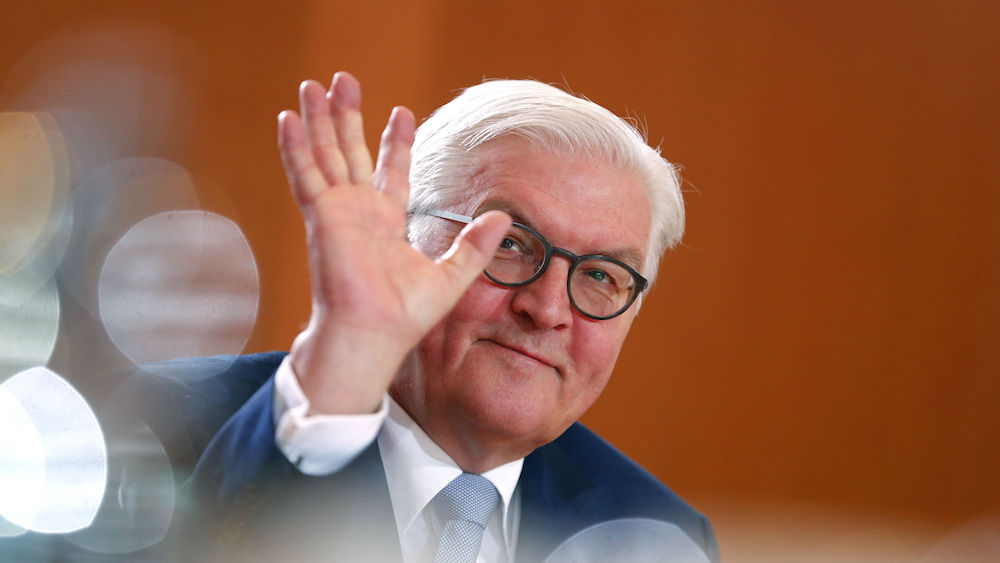Ahead of this year’s federal elections, Chancellor Angela Merkel is coming under serious pressure – Frank-Walter Steinmeier, from the rival Social Democrat party, has just been named Germany’s new president. However, the change is slight, and shows how resistant Germany is to the wave of populism sweeping Europe.
Remember the Austrian presidential election a few months ago? The excitement, the tension, the rush of international media? The fear of a right-wing nationalist entering the country’s highest office?
Not so here. When Germany’s former Foreign Minister Frank-Walter Steinmeier was elected to the office of Federal President on February 12, things went exactly as planned. The day was as uneventful as if populism had never happened.
The difference is not in the office – in Germany, the president has as little power as in Austria. But in Germany, with its experience of the Weimar Republic and its last President Paul von Hindenburg, there is no direct election. Even more importantly, Germany’s solid economic growth has been protected it relatively well against the wave of populism sweeping the world.
This year, France’s presidential elections may bring Marine Le Pen, leader of the nationalist and xenophobic Front National, to power. In the Netherlands, which will also be holding elections this spring, Geert de Wilders’ Freedom Party is expected to come in first. Italy, where elections are expected for June, may sweep in Beppe Grillo’s Five Star Movement.
In contrast, the Alternative für Deutschland – an unpleasantly nationalist and revisionist movement – is stuck between 10 and 15 percent, and riven by leadership struggles. Neither of the two politicians who have a chance of being elected in September will have the least little bit to do with the AfD.
Angela Merkel, the incumbent, is the epitome of sobriety and common sense, and as far away from populism as one can get. Martin Schulz, the Social Democratic candidate, is more direct and aggressive, but his politics are liberal and pro-European. Whoever wins the next elections will not bring any dramatic change of policy to this key country.
It seems fitting, then, that Steinmeier’s election was a grand celebration by the country’s political establishment. After attending an ecumenical service, 1,260 electors in their Sunday best – mostly members of the Bundestag and the state parliaments – crowded into the Reichstag.
To add color, there were also a few celebrities. German national football trainer Joachim Löw was there, the television actress Veronica Ferres, publisher Friede Springer, and Olivia Jones, a drag queen and political activist nominated by the Greens. With her bright orange hair, Jones was the day’s most popular photo motif, easily eclipsing the new president.
Steinmeier, 61, is smart, personable, and well-spoken. He served as head of the chancellery under Gerhard Schröder and twice as foreign minister under Angela Merkel. He is thoroughly decent and reliable, and according to a weekend poll, 59 percent of Germans believe he will make a fine president.
There is one thing Steinmeier, however, is not: he is not exciting. In 2009, he ran as the Social Democrat’s candidate for chancellor against Merkel and lost. Some blamed his lack of charisma and pugnaciousness. Then again, Steinmeier was neither the first nor the last man to have lost out to Merkel over the course of her career.
Herald of Merkel’s Defeat?
In a twist of history, it is his election now which may herald Merkel’s defeat in the parliamentary elections later this year. According to this country’s political lore, presidential elections have often foreshadowed changes in government. Merkel’s political bloc – her own Christian Democratic Party and its Bavarian sister party, the Christian Social Party – is still unhappy that in 2015, she opened the borders to nearly a million refugees.
That grumbling increased when late last year Merkel could not find anybody from her own Christian Democratic party to stand for president. Even though the Social Democrats are only the junior partners in her government coalition, she ended up agreeing to their choice, Frank-Walter Steinmeier.
Then such a choice may have seemed relatively harmless to Merkel. After all, Social Democrats, due to a thoroughly unpopular leader, were stuck at the bottom of the polls. Since then, however, the party has selected a new candidate. Martin Schulz, former president of the European Parliament, has had remarkable success in reviving the Social Democrats’ fortune and self-confidence.
Now Schulz is flying high in the polls – and his party is catching up as well. From 21 percent, the SPD has jumped to 33 percent, the party’s best rating in a decade.
Of course, it is still early days, and the “Schulz Effect”, as it is known, may collapse before long. In the meantime, however, a number of Christian Democrats are losing faith in Merkel. Steinmeier still won the presidency by a wide margin, but more than a hundred abstentions and some extra votes for the AfD’s candidate reflect some serious doubts inside Merkel’s own bloc.
“No, we aren’t living on an island of the blessed,” Steinmeier said in his acceptance speech. Yet in comparison to other countries, German politics are still pretty tame.







